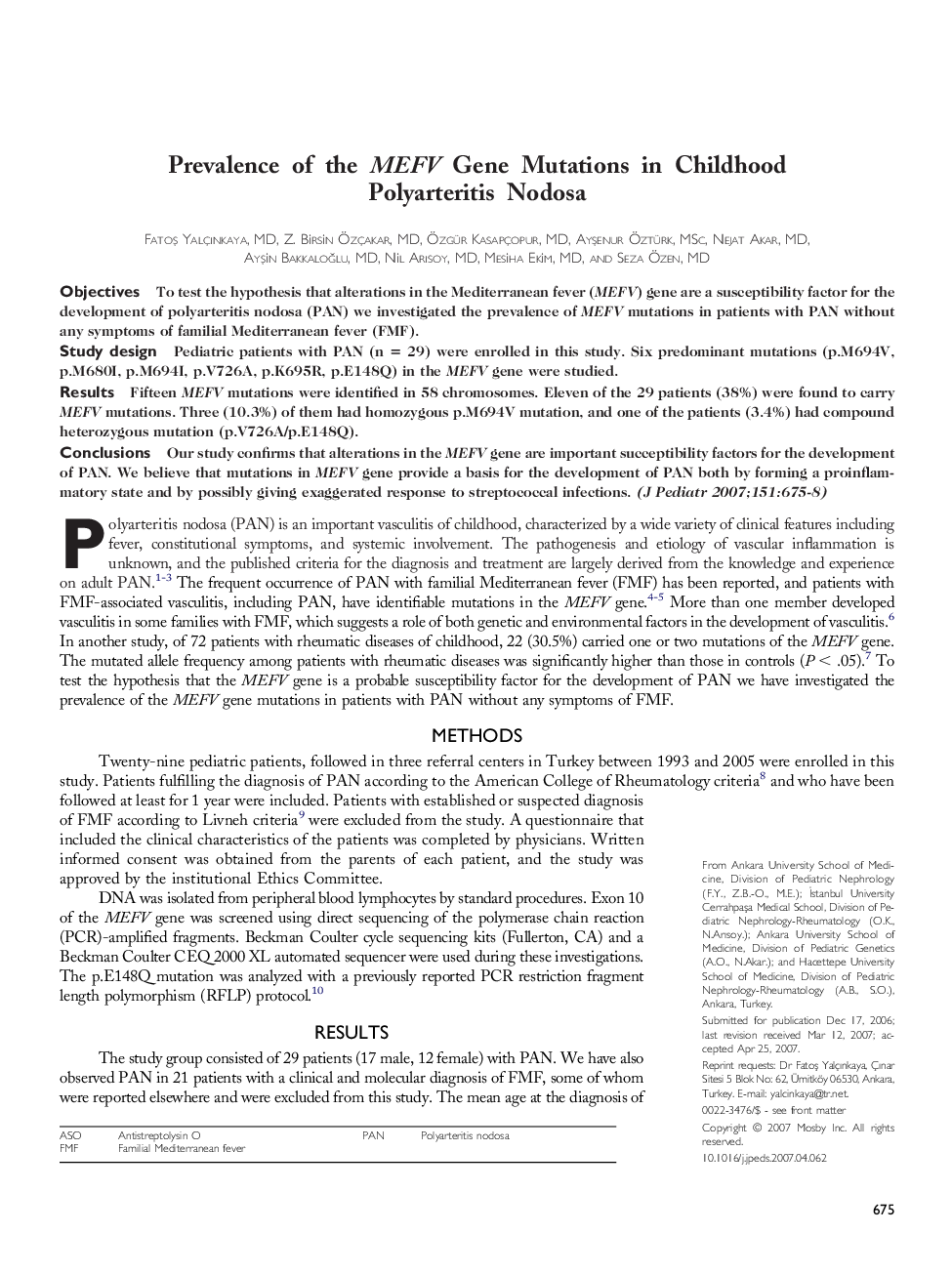| Article ID | Journal | Published Year | Pages | File Type |
|---|---|---|---|---|
| 4167589 | The Journal of Pediatrics | 2007 | 4 Pages |
ObjectivesTo test the hypothesis that alterations in the Mediterranean fever (MEFV) gene are a susceptibility factor for the development of polyarteritis nodosa (PAN) we investigated the prevalence of MEFV mutations in patients with PAN without any symptoms of familial Mediterranean fever (FMF).Study designPediatric patients with PAN (n = 29) were enrolled in this study. Six predominant mutations (p.M694V, p.M680I, p.M694I, p.V726A, p.K695R, p.E148Q) in the MEFV gene were studied.ResultsFifteen MEFV mutations were identified in 58 chromosomes. Eleven of the 29 patients (38%) were found to carry MEFV mutations. Three (10.3%) of them had homozygous p.M694V mutation, and one of the patients (3.4%) had compound heterozygous mutation (p.V726A/p.E148Q).ConclusionsOur study confirms that alterations in the MEFV gene are important succeptibility factors for the development of PAN. We believe that mutations in MEFV gene provide a basis for the development of PAN both by forming a proinflammatory state and by possibly giving exaggerated response to streptococcal infections.
